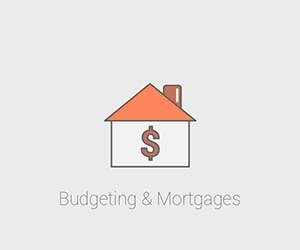 What are points?
What are points?
Points are fees your lender charges, usually 1 or 2 percent of the total loan amount. It’s important to factor in points when shopping for mortgages as a loan with a higher interest rate and no points could ultimately be cheaper than a lower interest rate with points. It’s also possible to negotiate that the seller pays points.
There are two types of points:
Discount points – These points go toward your interest rate. The more points you pay, the lower your rate. These points are tax-deductible.
Origination fee – These points are a fee the lender charges for processing your loan. If they only go toward obtaining the mortgage, they are tax-deductible. If they cover other closing costs, such as notary fees and inspections, they aren’t.
Should I buy points on my loan?
This is a case-by-case decision. If you need to lower your closing costs, a loan that charges points wouldn’t be the best option. If you’d like to get the lowest mortgage rate and you plan to keep the property for a long time, points can be worth it.
For example –
Loan with points:
Mortgage amount: $200,000
Term: 30-year fixed
Points: 2 (2% of mortgage amount = $4,000)
Interest rate: 4.3%
Monthly payment: $990 (assuming the $4,000 for points was financed)
Loan without points:
Mortgage amount: $196,000 (assuming the $4,000 you would have used for points went to a bigger down payment instead)
Term: 30-year fixed
Points: 0
Interest rate: 5%
Monthly payment: $1,052
If you don’t refinance or sell, over 10 years, you would save $7,775 by choosing the loan with points.
What are APRs?
Unlike your interest rate, which gives you a flat picture of the percentage you’re paying on your loan, an annual percentage rate (APR) factors in all your expenses—interest, points, broker fee, and other closing costs. It’s a more accurate gauge of how much your mortgage is going to cost you. Your lender is required to provide your APR on your Loan Estimate and Closing Disclosure documents. When comparing mortgages, you have to compare their APRs, not just their interest rates.
HOA, Maintenance, Common Charges
If you buy a condo, coop, townhouse, or home in a gated community, you’ll have to pay a common charge known as a Homeowners Association (HOA) fee or maintenance fee. These monthly payments, separate from your mortgage payments, are paid to your property manager or board. Lenders will often require that you pay a number of months of upfront HOA fees at the time of closing, so keep that in mind when calculating your down payment and closing costs.
These fees cover a variety of costs, depending on the by-laws and governing documents of the HOA. It is important to carefully review these documents (learn more about condos and co-ops in the What type of property is right for you? section) so that you know what monthly expenses will be paid by the HOA and what you will have to pay in addition to your HOA fees. Generally the fees will cover the cost of the association management, common area maintenance (lighting, gardening, pool area), any security (cameras, gates), and general exterior repairs and upkeep. HOA fees may also cover certain joint utilities (water, gas, heat), any property personnel (superintendent, doorperson, cleaning person, gardener), cable and/or internet service, laundry and gym facilities, and even ground lease rent if you’re buying a condo in a building that is itself rented.
If you’re buying in a co-op, these fees will also cover property taxes.
| << PREVIOUS CHAPTER: What Is an Escrow Account? | NEXT CHAPTER: Understanding Mortgage Penalties >> |

































